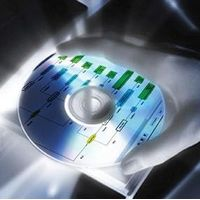Thermo Scientific - Galileo LIMS
Manufactured by Thermo Scientific
Allows bioanalytical laboratories to design, calculate and graph in vitro ADME/Tox experiments in a single application.
Thermo Scientific* Galileo LIMS is a purpose-built Laboratory Information Management System (LIMS) that allows bioanalytical laboratories to design, calculate and graph in vitro ADME/Tox experiments in a single application.
Galileo is fully scalable to multi-site, enterprise-wide use to promote standardization, providing the benefits of rapid deployment, minimal customization and low risk. Galileo's ability to perform a wide variety of screening and definitive assays allows better screening of compounds' ADME properties to lower drug development costs. Galileo also has the ability to handle large volumes of compounds with data graphing and visualization, so you can maximize compound throughput with high quality results.
Galileo is fully scalable to multi-site, enterprise-wide use to promote standardization, providing the benefits of rapid deployment, minimal customization and low risk. Galileo's ability to perform a wide variety of screening and definitive assays allows better screening of compounds' ADME properties to lower drug development costs. Galileo also has the ability to handle large volumes of compounds with data graphing and visualization, so you can maximize compound throughput with high quality results.
Active Questions & AnswersAsk a Question
There are no current Discussions
LIMS Service ProvidersView All (2)
Documents & ManualsView All Documents
Features of Galileo LIMS
The Galileo system is designed to conduct permeability (Papp), enzyme inhibition (IC50, Ki and mechanism-based inactivation) assays, metabolic stability, enzyme kinetics, and protein binding experiments. Galileo is a template-driven LIMS system in which the experiments are defined up-front simply by applying a design template to the test compound. The templates allow one-click definition of the experimental design, the conditions in each incubation, and the assay parameters. A complete set of powerful calculations are built into the LIMS engine.
Key Features
- Interfaces to laboratory instruments
- Configurable assay setup and management
- Privilege-controlled password-protected security system
- Oracle 10g and Windows 2003 and XP compatible
Benefits
- Automated results flagging further enables high throughput data review and acceptance
- Conforms to 21 CFR Part 11 Electronic Records and Electronic Signatures regulations
- Centralized data repository for in vitro data
- Graphical gallery and tabular views allow rapid data review and acceptance of results
- Offers standardized way to conduct studies by the sharing of templates and protocols
Support for key in vitro experiment types
- Permeability (Papp)
- Enzyme inhibition (IC50, Ki and mechanism-based inactivation) assays
- Metabolic stability and profiling
- Km Vmax using 8 different models
- Protein binding (equilibrium dialysis and ultrafiltration)
General Specifications
There are no General Specifications available.

